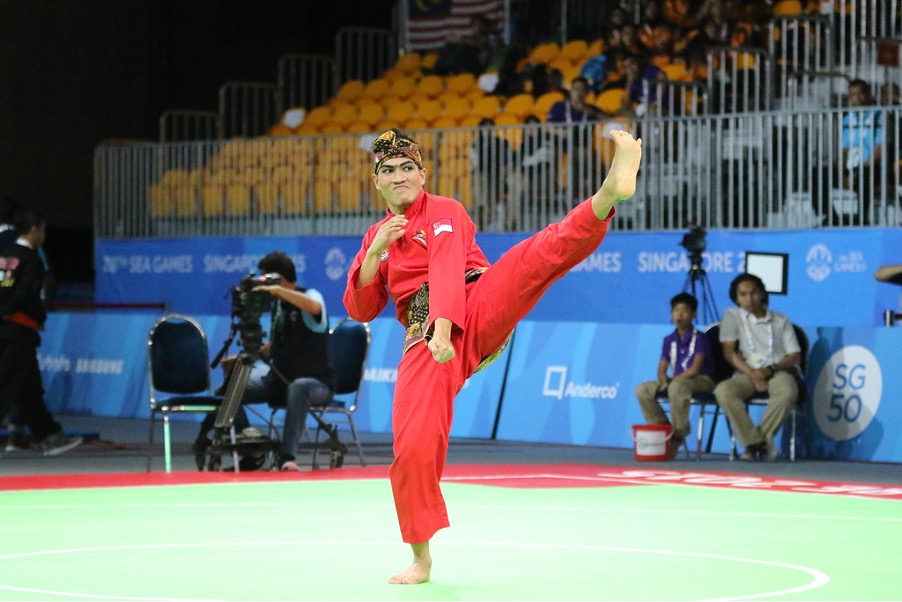Safeguarding the Culture and History of Pencak Silat in Singapore: An Intangible Cultural Heritage of the Malays in Singapore
December 13, 2021

Singapore won seven gold medals at the 18th World Pencak Silat Championships during the 13th to the 16th of December 2018. This was the country’s best-ever showing at the competition, which is widely considered to be the pinnacle of competitive events in the regional sport.
In addition to being a sport and a form of self-defense, pencak silat is widely relied upon by its teachers to impart religious concepts and philosophies, tales of local legends, and an understanding of traditional and cultural values. Pencak silat is practiced in many Southeast Asian countries such as Singapore, Malaysia, Vietnam, and Indonesia. In ‘Safeguarding the Culture and History of Pencak Silat in Singapore: An Intangible Cultural Heritage of the Malays in Singapore’ (Traditional Martial Arts, 2020), Dr Mohamed Effendy (NUS Southeast Asian Studies) focuses on pencak silat as a vehicle to pass on traditional values to younger generations and traces its development in Singapore, exploring its effects on the local Malay community.
The origins of pencak silat in Singapore can be traced back to the migrants that descended from the region and came to Singapore after it was established as a British trading outpost in 1819. These migrants were skilled practitioners of the martial art and established communities and villages that taught their form of pencak silat to its students. Different pencak silat groups took root and soon flourished as more members of the Malay community saw the martial art as both a form of self-defense and as a medium to remain connected to their cultural and historical origins.
Pencak silat places an importance on embodying the values of its founders, namely fearlessness, kindness, and loyalty. Receiving instruction in pencak silat then becomes another way to impart ethics and morals to younger generations. Dr Effendy investigates pencak silat’s contributions to the social and cultural success of Singapore’s Malay community. He raises the example of using the values promoted by pencak silat to directly intervene in social problems such as drug abuse, illustrating the ways in which silat training cultivates individual emotional and physical resilience to overcome harmful habits.
Dr Effendy notes that pencak silat’s values can be used to further enhance the development of the local Malay community. Its ability to transmit traditional values and philosophies is a way to combat the dilution of local cultures that has resulted from globalization. Dr Effendy notes that the rise in interest in mixed martial arts could potentially resurrect interest in pencak silat because of its focus on elements such as locks and ground fighting.
Read the article here: http://unescoicm.org/eng/library/bookreport.php?ptype=view&idx=6782&page=1&code=bookreport_eng
